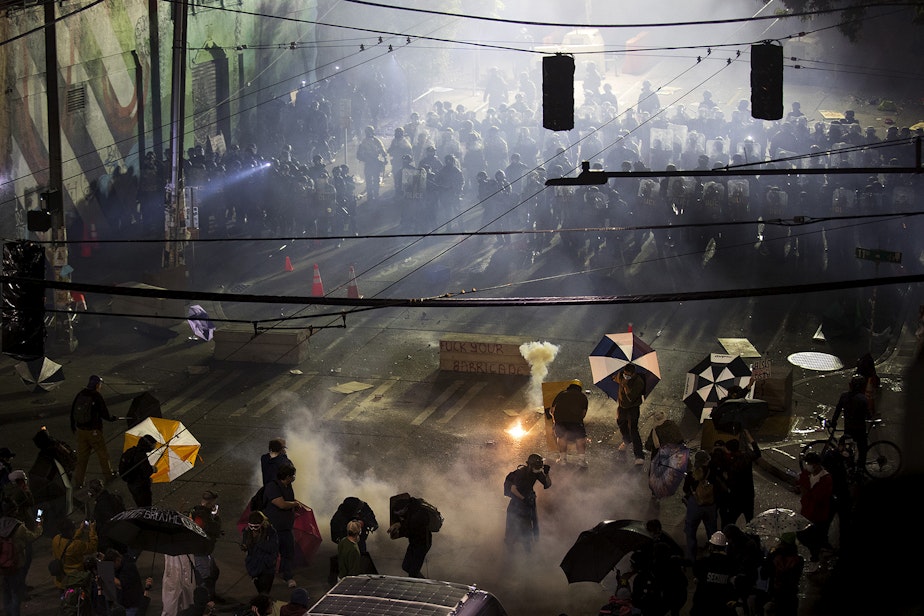Seattle City Council approves police use of blast balls, pepper spray, tear gas during protests

The Seattle City Council Tuesday reauthorized the use of blast balls, pepper spray, tear gas, and pepper balls by police for crowd-control purposes, despite the objections of people who said they were impacted by those non-lethal weapons during the 2020 racial justice protests.
The ordinance, passed by a vote of 6-3, limits the use of those non-lethal tools to instances where officers believe they face "imminent risk of physical injury to any person or significant property damage."
RELATED: Hundreds pack City Hall, fill overflow room for public hearing on Seattle's growth plan
"At the end of the day this is about protecting the rights of people to gather and to protect their free speech," said District 7 Councilmember and Public Safety Chair Robert Kettle, who led the group backing the ordinance.
District 5 Councilmember Cathy Moore, one of three members who voted against the measure, said the current political environment was not the time to be restricting people from exercising their constitutional rights to protest. She pointed to a protest against President Donald Trump's executive orders the previous weekend in Seattle in which a police officer reportedly aimed a blast-ball gun at a protester.
"We haven’t really come that far from 2020," Moore said. "We’re about to embark on another experiment on our residents at an incredibly volatile time for our nation."
Sponsored
RELATED: More officers hired, fewer shots fired: Seattle interim Police Chief Rahr optimistic as she exits
In the wake of the 2020 protests, the city attempted to prevent police use of non-lethal weapons for crowd control, but that move was blocked by a federal judge.
The new ordinance allows police to use non-lethal weapons such as blast balls and pepper spray but requires those methods to be approved by the chief of police. An amendment to the ordinance requires police to throw blast balls under-hand and not directly at people but at open spaces.
Blast balls are grenade-like objects that omit loud booms and bright flashes of light. They have reportedly injured protesters and led to diagnoses of post-traumatic stress disorder in others.
"Given all that we've experienced in this city going back to WTO, it’s clear that blast balls are very dangerous methods of last resort," Moore said.
Sponsored
Police response to protests have been hotly debated in the city dating back to the anti-globalization protests surrounding the World Trade Organization conference — which Moore was referencing — in Seattle in 1999.
Adopting a new crowd-control policy is required to fully end federal oversight of the Seattle Police Department.
RELATED: Seattle police face reckoning over 'culture' in 2024 as federal oversight winds down
District 1 Councilmember Rob Saka said the way the issue was addressed, amended, and debated represents the way the new Council operates — thoughtfully and reasonably.
"Today's legislation is about balance, and together we've achieved it," Saka said.
Sponsored
Aside from Moore, citywide Councilmember Alexis Mercedes Rinck and District 3 Councilmember Joy Hollingsworth also opposed the measure.
Both Rinck and Hollingsworth questioned the level of accountability required for police to use non-lethal weapons to control crowds.
"Protests are going to keep happening in this city," Rinck said. "Actions from officers like this can escalate incidents like this in an instant."




